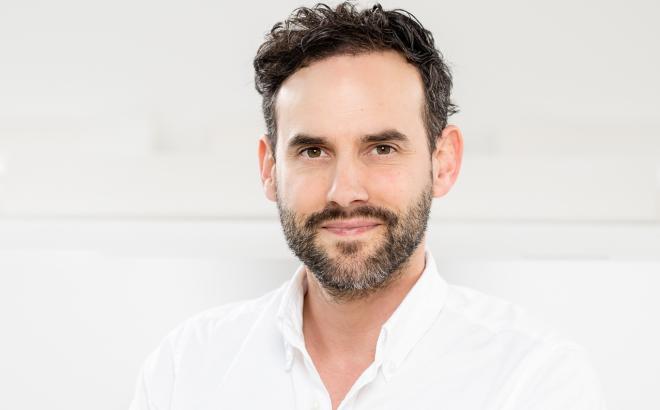David Willinger, Neuroscientist
The Neuroscientific Look into the Psyche
Two souls are dwelling in David Willinger’s breast: that of the cognitive neuroscientist who wants to understand how psychological processes are represented and implemented in our brain and that of an IT specialist and engineer who looks for new tools and formal descriptions of these processes. Both skills greatly help him as a researcher at the Department of Psychological Methodology at the Karl Landsteiner University of Health Sciences to stay curious and think across disciplines.
Looking back on his professional career, the scientist describes his internship at the MR centre of the Medical University of Vienna during his studies as very formative: “It was there that I gained initial experience in carrying out scientific MRT studies. This decision was the basis to go for a career and a research position in imaging and modelling in the medical/psychological field. After that, my job at the Clinic of Child and Adolescent Psychiatry and the cooperation with different research groups in Zurich essentially shaped my today’s interest in researching cognitive and neuroscience with a focus on the clinical context.” Studying cognitive science at the University of Vienna and medical informatics at the Vienna University of Technology, he has always been keen on an interdisciplinary approach in psychological research, which also holds important resources for him. “I find the perspectives the different disciplines have on the same phenomenon, like for example investigating the effects of mental disorder from a neurobiological, psychological or social view, very enriching.”
David Willinger mentions several reasons why he committed himself to do research at the Department of Psychological Methodology at the Karl Landsteiner University. For one part, it is the possibility to contribute in shaping teaching and develop science in cooperation with several partner clinics which offers a great potential of synergy effects. For the other, it is the subjects dealt with in the department which have become extremely relevant these days. An example is the development of research tools for smartphones and wearables for comprehensive ransom sampling, improved replicability through repeated measurements or broad phenotyping in psychology. Another field is translating the results into the application for training or treatment concepts. “Our questions tackle the interface between basic and methodological research and concrete applications. Their focus is on cutting-edge technology and how to use it to improve psychological research. The development of the PhD programme Neuroscience and Mental Health at the Karl Landsteiner University also holds great potential,” David Willinger explains.
As scientist, he is mainly driven by his curiosity and interest in challenging tasks which call for a solution oriented working. “This also means to regularly put my own assumptions and my knowledge to the test – probably one of the reasons why I ended up in research and not in the IT.”
The expert’s wish for the future is a higher sensitivity in the understanding of body-mind interactions – for clinical problems, but also when investigating the correlations between behaviour and emotions. Not least the COVID-19 pandemic clearly showed again how important mental health – especially for kids and adolescents – is. In many cases, it would still be long way to a fast and effective treatment of the symptoms. The know-how of neuroscience can provide key indications for clinical practice, while an interdisciplinary approach adds to a better understanding of disorders. “We use cognitive behaviour patterns of patients to derive significant behaviour parameters in experiments to draw conclusions on the clinical presentation they match. For the research work with (psychiatric) patients, it is a big challenge to develop suitable and sensitive methods for appropriate predictions which are also clinically relevant. For example to answer the question which concrete medication or treatment would be successful for a given cognitive or digital phenotype. Developing these methods using cutting-edge technology could be of great help in clinical everyday life and eventually to the affected patients.”
Link to the KL research information system KRIS





